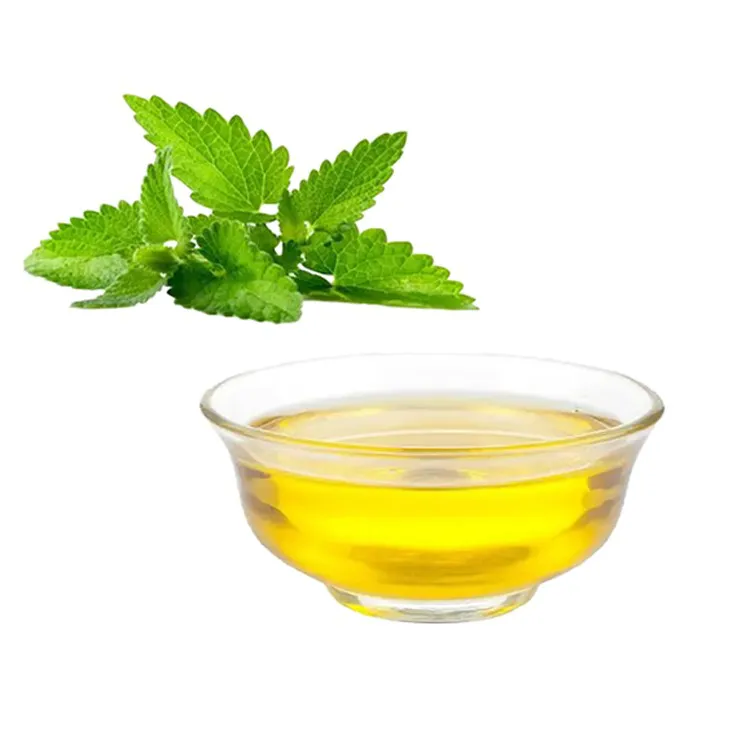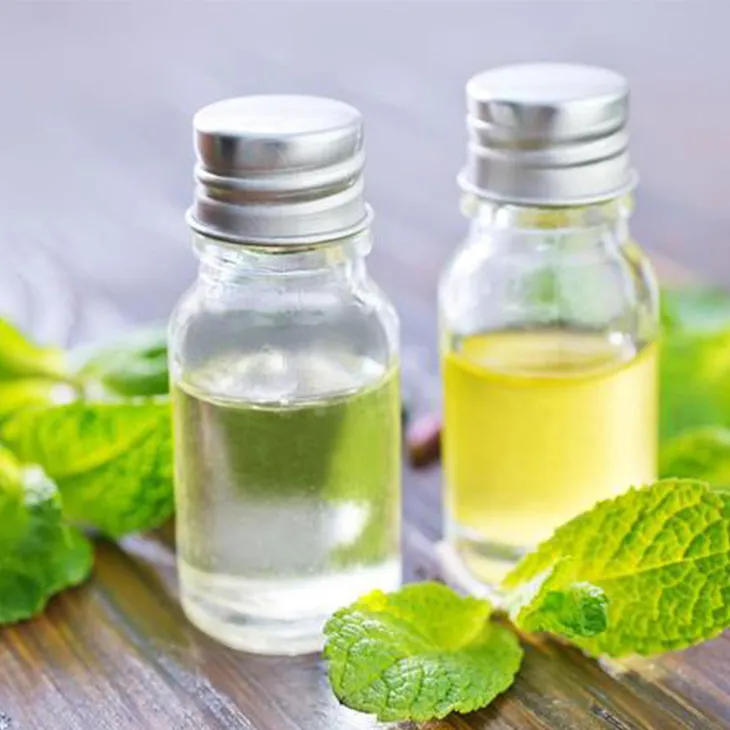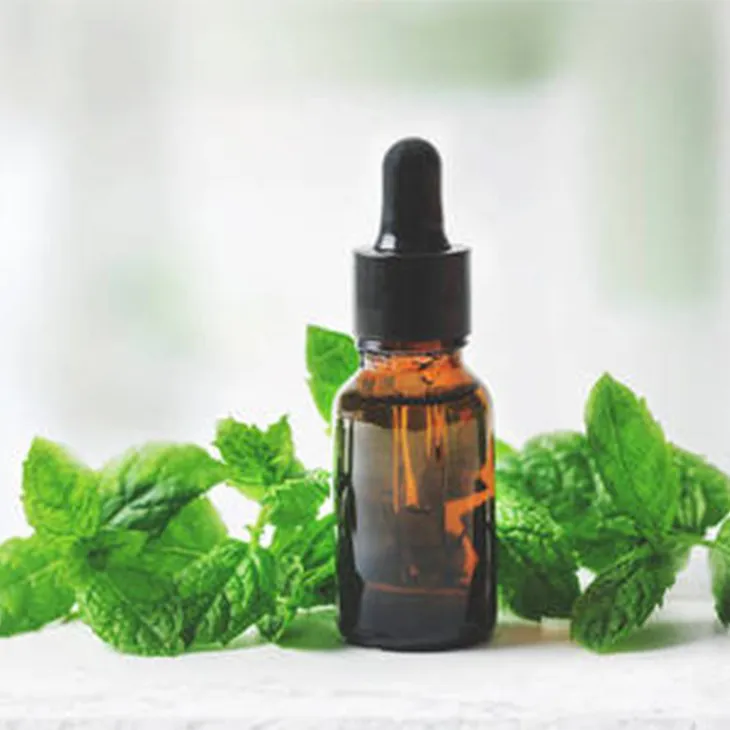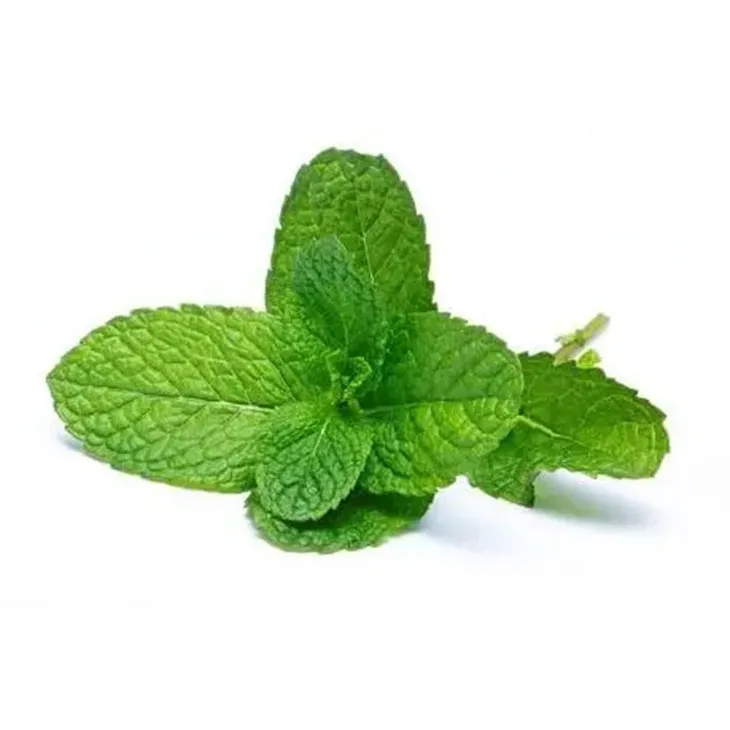- 0086-571-85302990
- sales@greenskybio.com
Peppermint Oil in Trinidad and Tobago.
2024-12-13

1. Introduction to Trinidad and Tobago
Trinidad and Tobago, a twin - island nation in the Caribbean, is a land of rich natural beauty and diverse resources. This small nation has made a name for itself in various sectors, and one of the areas that deserve special mention is the production of Peppermint Oil. The islands' geographical location, climate, and soil composition have all contributed to the development of a unique Peppermint Oil industry.

2. Ideal Conditions for Peppermint Cultivation
The Climate: Trinidad and Tobago enjoys a tropical climate that is highly conducive to peppermint growth. The warm temperatures, combined with adequate rainfall, create an environment where peppermint plants can thrive. The consistent climate throughout the year means that peppermint can be cultivated without the risk of extreme cold or frost, which could otherwise damage the plants.
The Soil: The soil in Trinidad and Tobago is rich in nutrients. It contains a good balance of minerals and organic matter, which provides the peppermint plants with the necessary nourishment. The fertile soil allows the plants to develop strong root systems and healthy foliage, which in turn contributes to a higher yield of Peppermint Oil.

3. The Process of Peppermint Oil Extraction
Harvesting at the Right Time: The process of extracting peppermint oil in Trinidad and Tobago begins with careful harvesting. Peppermint plants are harvested at a specific time when the oil content is at its highest. This requires farmers to have a good understanding of the plant's growth cycle. Timing is crucial as harvesting too early or too late can result in a lower quantity and quality of oil.
Extraction Methods: There are several methods used for extracting peppermint oil in Trinidad and Tobago. One common method is steam distillation. In this process, the peppermint plants are placed in a distillation apparatus, and steam is passed through them. The steam causes the oil glands in the plants to release their oil, which is then condensed and collected. Another method that is sometimes used is solvent extraction, although this is less common due to concerns about solvent residues in the final product.

4. Applications in Traditional Medicine
Peppermint oil from Trinidad and Tobago has been used in traditional medicine for centuries. It is highly regarded for its soothing properties.
Digestive Aid: It is known to help with various digestive problems. When consumed in small amounts, it can relieve symptoms such as indigestion, bloating, and nausea. It works by relaxing the muscles in the digestive tract, allowing for smoother digestion.
Headache Relief: Peppermint oil can also be used to relieve headaches. When applied topically to the temples or forehead, it has a cooling effect that can soothe the pain. This is due to its ability to constrict blood vessels in the area, reducing the pressure that may be causing the headache.

5. Use in the Cosmetic Industry
The cosmetic industry in Trinidad and Tobago and around the world has also recognized the value of peppermint oil from the islands.
Refreshing Aroma: One of the main attractions of peppermint oil in cosmetics is its refreshing aroma. It adds a clean, minty scent to products, which is highly appealing to consumers. This aroma is often used in products such as lotions, where it can provide a pleasant sensory experience during application.
Skin Benefits: Peppermint oil also has certain skin - benefiting properties. It has a cooling effect on the skin, which can be soothing, especially for irritated or sunburned skin. In addition, it has antibacterial properties that can help keep the skin clean and free from certain types of infections.
6. Role in the Food Industry
Trinidad and Tobago's peppermint oil plays an important role in the food industry as well.
Flavoring Agent: It is widely used as a flavoring agent in various food products. In candies, it gives a distinct minty flavor that is loved by many. For example, peppermint - flavored hard candies are a popular treat. In gums, it provides a long - lasting fresh breath effect. And in beverages, it can add a refreshing twist, whether in hot teas or cold sodas.
Food Preservation: Peppermint oil also has some potential in food preservation. Its antibacterial properties can help inhibit the growth of certain bacteria in food, thus extending the shelf life of some products. However, more research is needed in this area to fully understand its effectiveness and safety for widespread use in food preservation.
7. Economic Significance
The production and export of peppermint oil from Trinidad and Tobago have significant economic implications for the country.
Income Generation: For local farmers, the cultivation of peppermint and the production of peppermint oil provide a source of income. It allows them to sell their products both domestically and internationally, contributing to their livelihoods and the economic well - being of their families.
Export Earnings: On a national level, the export of peppermint oil earns foreign exchange for Trinidad and Tobago. This helps to strengthen the country's economy and can be used to fund various development projects, such as infrastructure improvements and education initiatives.
8. Challenges and Future Prospects
Despite its many advantages, the peppermint oil industry in Trinidad and Tobago also faces some challenges.
Competition: There is competition from other countries that also produce peppermint oil. Some larger producers may have economies of scale that allow them to produce peppermint oil at a lower cost. Trinidad and Tobago needs to find ways to differentiate its product and compete effectively in the global market.
Climate Change: Climate change poses a threat to the peppermint cultivation in Trinidad and Tobago. Changes in rainfall patterns and temperature could potentially affect the growth and quality of peppermint plants. Farmers may need to adapt their cultivation practices to cope with these changes.
Future Prospects: However, there are also opportunities for growth. There is an increasing demand for natural and organic products in the global market, and peppermint oil from Trinidad and Tobago, with its high - quality and natural origin, could potentially tap into this market. Research and development efforts could also focus on finding new applications for peppermint oil, which could further expand the industry.
FAQ:
What makes peppermint oil from Trinidad and Tobago unique?
The favorable climate and rich soil in Trinidad and Tobago provide ideal conditions for peppermint cultivation, which gives the peppermint oil a unique quality.
How is peppermint oil extracted in Trinidad and Tobago?
The extraction process involves careful harvesting of the peppermint plants at the right time to ensure the highest oil content.
What are the uses of peppermint oil from Trinidad and Tobago in traditional medicine?
It is used in traditional medicine for its soothing and digestive properties.
How is peppermint oil from Trinidad and Tobago used in the cosmetic industry?
It has a refreshing aroma that is added to various cosmetic products like lotions and perfumes.
What role does peppermint oil from Trinidad and Tobago play in the food industry?
It can be used as a flavoring agent in candies, gums, and beverages, adding a distinct minty flavor.
Related literature
- Peppermint Cultivation in the Caribbean"
- "The Properties and Applications of Trinidad - Tobago Peppermint Oil"
- ▶ Hesperidin
- ▶ Citrus Bioflavonoids
- ▶ Plant Extract
- ▶ lycopene
- ▶ Diosmin
- ▶ Grape seed extract
- ▶ Sea buckthorn Juice Powder
- ▶ Fruit Juice Powder
- ▶ Hops Extract
- ▶ Artichoke Extract
- ▶ Mushroom extract
- ▶ Astaxanthin
- ▶ Green Tea Extract
- ▶ Curcumin
- ▶ Horse Chestnut Extract
- ▶ Other Product
- ▶ Boswellia Serrata Extract
- ▶ Resveratrol
- ▶ Marigold Extract
- ▶ Grape Leaf Extract
- ▶ New Product
- ▶ Aminolevulinic acid
- ▶ Cranberry Extract
- ▶ Red Yeast Rice
- ▶ Red Wine Extract
-
Troxerutin
2024-12-13
-
Maca Extract
2024-12-13
-
Chaste Berry Extract
2024-12-13
-
Lycopene
2024-12-13
-
Grape Leaf Extract
2024-12-13
-
Rosemary extract
2024-12-13
-
Senna Leaf Extract
2024-12-13
-
Tongkat Ali Extract
2024-12-13
-
Berberis aristata Extract
2024-12-13
-
Hawthorn Extract
2024-12-13





















